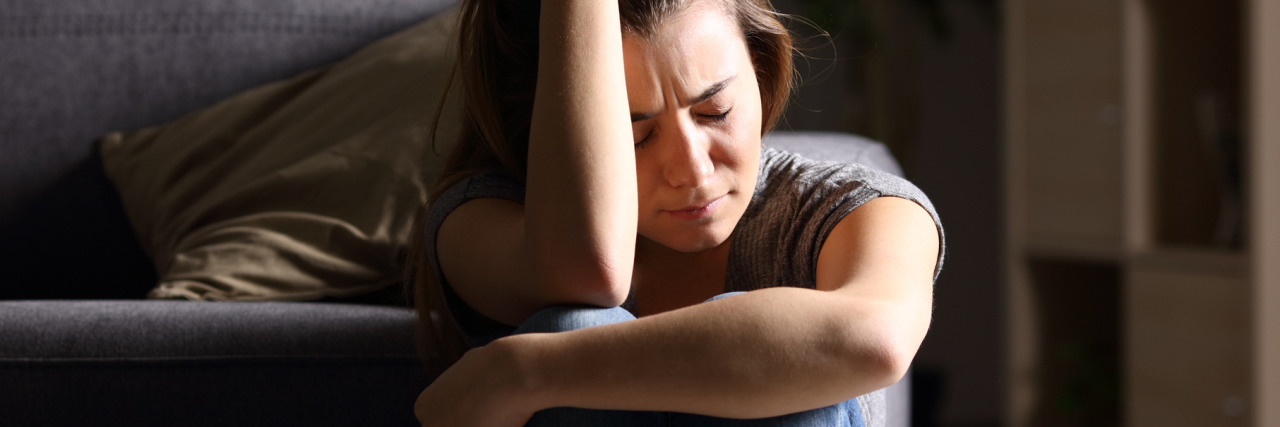Loving someone with depression is never easy. It can be an unpredictable, yet devastating illness. Sometimes it can even be mistaken for immaturity or selfishness. Like any relationship, it takes love, support, compromise and understanding to make it successful… and to make it last. I entered a relationship in probably the most troubled time of my life. I was a severely depressed college student who happened to fall in love. And I fell hard.
For a majority of the relationship, I knew I was the “sick” one. The one who wasn’t quite right. The one who had something wrong. I automatically put myself in this “inferior” category because I had a mental illness. I cried a lot. I honestly think I sometimes made him cry too. However, we made it through a year of ups and downs — mainly ups. We met new people together, we experienced new things, we supported each other and we laughed a lot. I loved our relationship and I loved him, but my depression was always around. Sometimes, it was in the background, but other times it was front and center, affecting our relationship. My depression seemed to come in waves. Sometimes it would be smooth sailing and sometimes the waters would get really rough. Those times were the hardest and those are the times I regret the most.
My first thought when we went our separate ways was: “maybe I was too depressed.” Maybe my depression was so bad that somewhere, I crossed over to this unlovable category. I was following all the rules, wasn’t I? I was going to therapy, seeing a psychiatrist and taking my medications as prescribed. Yet, it didn’t seem to make a difference. Maybe if I didn’t cry as much as I did, things would have worked out differently. Maybe I should have acted happier; then, we would have made it. I could have put on this front or I could have been a better actress. Maybe I could have stayed in character a little longer and not let the “real me” come through. Maybe then, things could have been different.
After a relationship ends, it’s always hard figuring out what you want to say. Do you want to give a big long speech to the other party or would you rather stay silent? And will it help or hurt you more to speak up? Well for me, I would rather say something to myself: You didn’t choose this illness. You’ve struggled with it for a very long time and you have done the best you can. Your relationship didn’t fail because you’re depressed. Your relationship failed because it just didn’t work out.
Looking back a few years later, it was silly and unfair to place myself in a “lesser” category. To place those around me in a higher class because I had a diagnosable mental illness doesn’t make any sense now. And, quite frankly, it didn’t make sense then. Just as anyone with a physical illness should not mark themselves inferior, neither should someone with a mental illness. Why was I letting this illness define who I was and further define what role in a relationship I was going to play and how it would turn out? I refuse to make that same mistake again. I refuse to make myself feel guilty for being depressed and I refuse to blame my depression for my failed relationship. Although depression may be front and center in my life sometimes, it doesn’t define who I am. It took me a long time to make peace with my illness and figure out how to navigate through it. Living with depression has been difficult, but I like to think after enduring all the pain and hopelessness, I laugh a little harder, smile a little brighter and love a little deeper.
We want to hear your story. Become a Mighty contributor here.
Getty Images photo via AntonioGuillem

